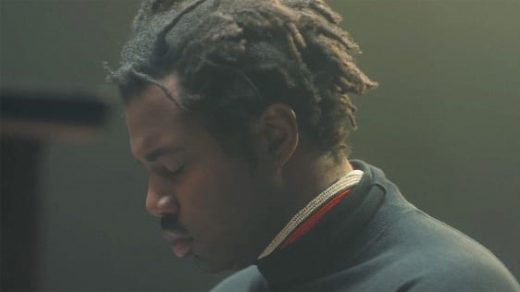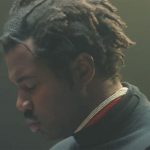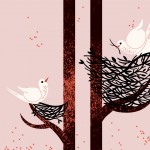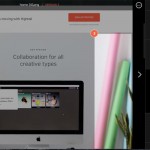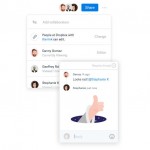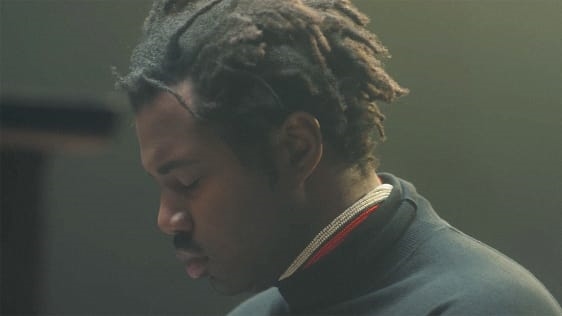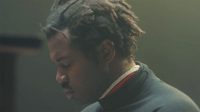The Music Industry’s Go-To Collaborator Sampha Just Wants To Understand Himself Better
Sampha has had a busy year. Then again, to hear the English singer talk about it, he’s been busy for a long while. He’s spent close to the last decade as the music industry’s collaborator go-to, working with the likes of SBTRKT and Jessie Ware in 2010, before lending his vocals to modern pop’s heavyweights, including everyone from Frank Ocean to Kanye West to both Beyoncé and Solange. Before all that, he started writing his own music in his early teens–a self-described exercise in procrastination that eventually got him discovered on MySpace and working alongside Drake.
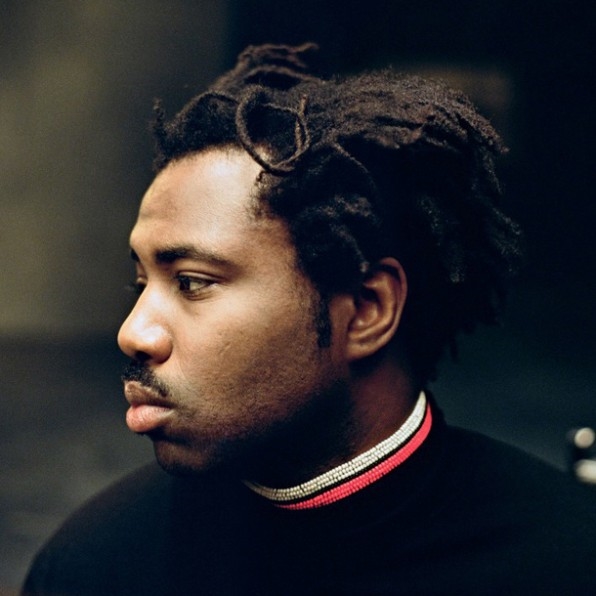
But even by Sampha’s description, 2017 has been special in its own right. His first full-length album dropped at the beginning of the year, and its title, Process, summarizes both the LP’s years-long construction as well as its rollout over a series of interviews and festival appearances–the trappings of newfound fame that might not come easily to the introspective-bordering-on-reticent Sampha. The nerves might abate incrementally with each new performance, but as he’ll admit, there’s still something daunting about staking his claim in the ever-crowding alternative R&B genre.
In a conversation with Fast Company after a recent music festival set, Sampha opens up about the importance of catharsis in finally releasing Process, why he’ll never regret his earliest music, and the reason he can’t figure out what he sounds like.
Fast Company: In the last year, you’ve released your LP and you’ve been doing the festival circuit. How have things changed for you?
Sampha: I’ve toured before, so I’ve had a bit of experience. But this has been a bit of a different feeling with this being my solo project. It’s really weird how unreal it kind of feels. You just kind of do it, in comparison to the amount of anxiety I had about doing festivals last year. Last year, I was like, “I don’t know how this is going to work.” Now it feels like I’m going on automatic. It’s a weird thing coming out with an album that people listen to. It feels like I’m establishing myself.
FC: So no more anxiety about this whole thing?
S: A little bit, but nowhere near as much as I used to. But I always do feel anxiety when I’m about to do something new. Not the crippling type–I actually get healthy anxiety, where I don’t take things for granted and I make sure I try and stay healthy.
FC: So you’ve worked with some marquee names, such as Solange, Frank Ocean, and Kanye West. What do you think it is about you or your music that they connect with?
S: I guess it’s because I’ve grown up listening to soul and R&B, even though I don’t really associate myself with R&B.
FC: What do you associate yourself with?
S: Probably more electronic. Obviously, growing up and the more I’ve listened to, the more I actually realize that I do have strong connections to the genre. And obviously that has roots in America, so I feel there’s something about the language in which you play the piano and sing that there’s something there for people to connect to.
FC: What was that moment like, when you decided you wanted to work on your own project rather than working on someone else’s?
S: It was a gradual thing. A lot of psyching myself up. And then it got to a point where I wrote a song and I felt like I didn’t want to just release it. I wanted to write more of it. That was kind of the beginning.
FC: Was there anything you set out to do differently on your own project than what you were doing in your collaborations? Anything you wanted to approach differently in your creative process?
S: I’ve been writing my own stuff long before I collaborated with anyone. For me, my personal goals were that I wanted to step up my production, maybe mix it up. Also, I wanted to be clearer lyrically. I just wanted to join the album club, really. I wanted to spend my time on a body of work and make it the best it could be.
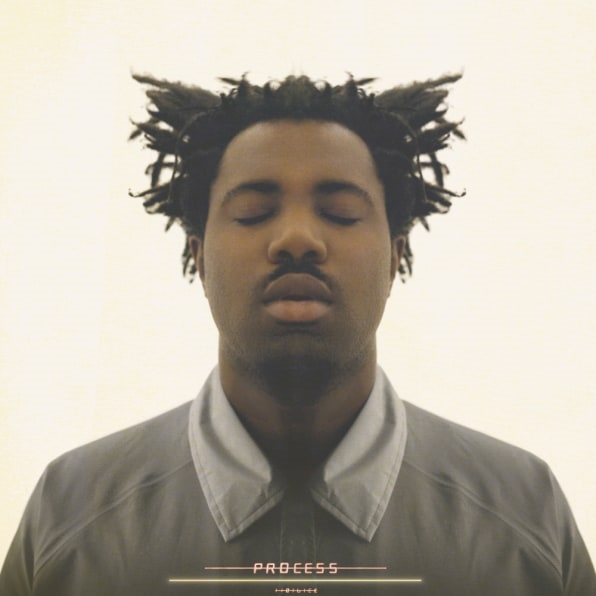
FC: Was it a cathartic experience for you?
S: Definitely. There were definitely moments where there was a lot of pent-up energy or whatever, and it definitely felt like it was a release I needed. I mean, that’s the role music has always played in my life.
FC: Were you itching to get back to writing or did that also just gradually happen?
S: It was a conscious thing that I was going to write. I needed that time and space.
FC: Going back to your lyrics, you said you wanted to make them clearer. With the album, your lyrics are incisive but they’re–
S: Yeah, they’re still veiled.
FC: Right. So what’s that writing process like?
S: Sometimes I write freestyle. A lot of my best words come out just very naturally. I don’t think about it or what I’m saying. But then there can be that thing where I labor over the words and I really try and think of what I’m singing about. For [Process], some of it was very easy to write because it was a catharsis. “(No One Knows Me) Like The Piano” was just a thought; it wasn’t a song. It was a weird thought to have, but sometimes I’ll just write a song from that. Sometimes, it might be a word I hear in a conversation. Sometimes, I’ll watch things, like Ghost in the Shell or Touki Bouki and that’ll inspire something. I’m quite a visual person that way.
FC: There are also a bunch of sounds on the album. Obviously, the piano and some more electronic tracks. But there’s also some light hip-hop. What sound do you gravitate to naturally?
S: Everything. Just sounds. I think I’ve got a particular idea, but I can’t really put my finger on it. People will hear something and tell me, “That sounds like you. That’s you.” I can hear it, but I can’t necessarily identify. Sometimes it’s particular grooves I like, or particular chords I like. But I can’t tell you in words what it is that I sound like.
FC: Why do you think it’s easier for other people to identify?
S: Objectivity, really. People are obviously more removed, where I’m just in it. I definitely like synths and messing around with synthesizers and drum machines. But it all comes down to how it’s arranged and what notes are played. I could tell you I like particular grooves, like syncopation and funk and African-inspired sounds. And jazz.
FC: How big an influence did your parents’ music taste have on your music?
S: Quite a bit, even though it wasn’t really obvious to me for a long time. Going through my dad’s record collection, I found a lot of West African music. Wassoulou music in particular, like Oumou Sangaré, who’s a Malian singer. But it was really my brothers. They helped me grow up with what I consider good music to be now.
FC: Did your brothers have a big influence on the album?
S: Yeah, to a degree. When I was showing them stuff, my brothers can be really blunt. They don’t worry about my feelings or anything. They’d go, “You need help with those drums, those drums aren’t good enough.” Other times, it’d be, “Wow, this is amazing.”
FC: When you’re making music, how much of it is about personal catharsis versus coming up with something universal for other people?
S: I do think to myself sometimes that I might be getting too introverted and people might not understand what I’m about, so maybe I need to make it more universal. But I don’t necessarily think [my music] starts with me wanting to make something universal. It’s about wanting to make what I’m feeling understandable, as opposed to making something purely for other people. But I think it’s good, because it challenges me to write something with a little more depth or narrative to it.
FC: When you say “more understandable,” do you mean better understanding for you or other people?
S: Definitely for me to understand better. But I think it’s important not to underestimate people’s hunger to understand what you’re trying to say or read deeper into things. They appreciate stuff that might not make sense, but understand the feeling or the vibe of it.
FC: You’ve mentioned you’ve been writing music for forever. What evolution have you noticed in your work?
S: Now, my ears are very much more attuned to things. But I don’t necessarily think I’ve become a better songwriter. I feel like music is a documentation of where you are at the tie. So if I listen to something that I wrote when I was 14, I think, “That’s great. That was really good.” And I might not be able to ever go back to that time and place, but I feel like some things drop off and some things get better. Your understanding of sound grows, but you might not have the same energy as when you were 21 or younger. You mature and maybe your sound…I wouldn’t say dulls, but maybe it’s not as hyperactive as it used to be.
FC: So you’re never hard on your old self?
S: Not really. I’m always harder on my present self. I’m hard on my future self, but not so much on my past self.
FC: Hard on your future self in what sense?
S: In the sense that thinking about the future and what you want to do can be crippling. I think it’s important to let go of where you were and what you did, because you can’t change it. I happen to think you can change the future.
Sampha’s Shy Light Zine
FC: You said you didn’t really think of yourself as R&B, but what are your thoughts on this new wave in the genre? Your name comes up alongside the likes of Solange and SZA.
S: Well, I was much younger when I thought that. Now I can see how I fit in. I’m not trying to get away from that, and I’m not dissin’ the genre or anything. But yeah, I feel like music is always in a good place. For me, there’s never really a lull. There’s always a few artists every year who have a golden year. But it’s also harder for me to see everything else now because I’m so in it. There’s kids out there who experience this time in such a different way. This could be really formative music for someone, and that’s the most enjoyable thing for me: imagining some kid or teenager listening to my album and hoping they have the same experience I had growing up. And that applies to anyone really, just catching them at the right point.
FC: What do you want to learn or figure out over the next year?
S: I want to challenge myself to do things differently to how I naturally do them. At the same time, I don’t want to kill myself over it. Maybe I play it up with structures, or I write songs that are a little more orchestral or classical. Maybe psychedelic Brazilian funk and trumpets. Something very much out of my realm, to challenge myself to understand those things. The weird thing about being a musician and an artist is taking yourself seriously. Because it’s so much fun, sometimes it’s weird to focus and not care what anyone else says. But I want to take all these ideas seriously and do them, even though I don’t know what the end result is.
Fast Company , Read Full Story
(26)

